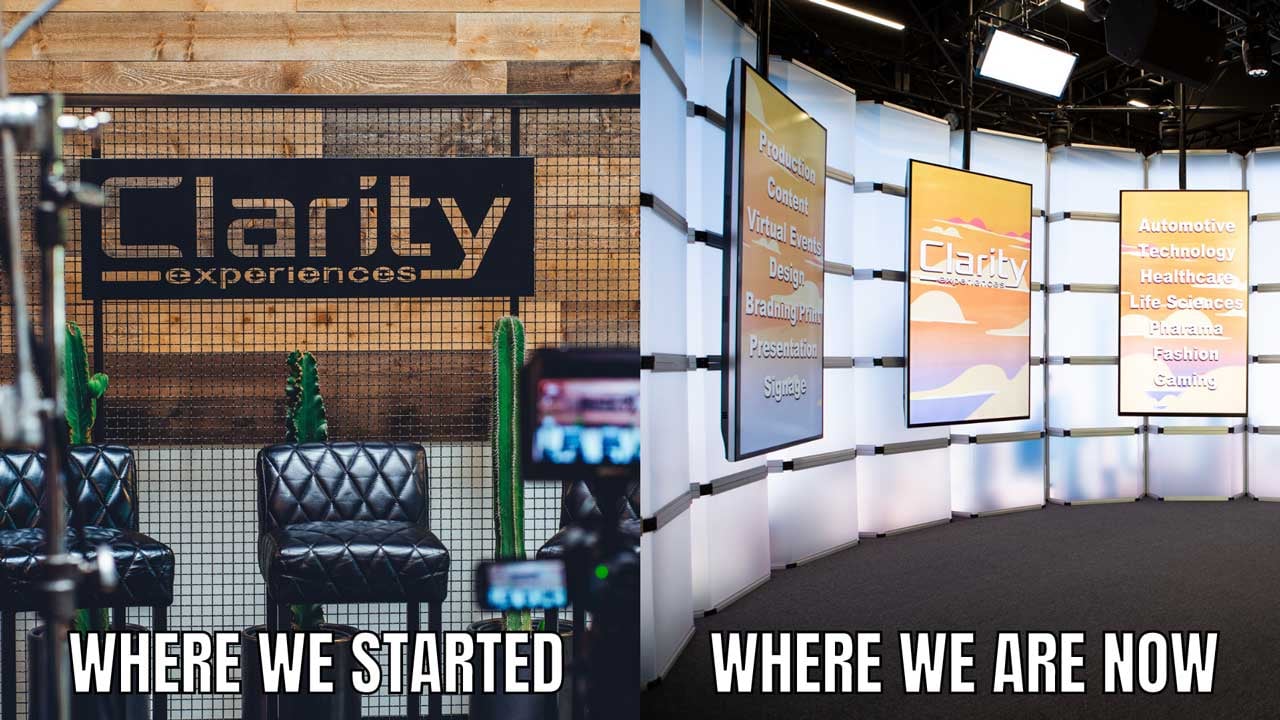Anyone Know What We Are Supposed To Call A Virtual Event?!
AV Production Audio Visual Event Industry Dec 09, 2020 Gary Lagestee
.png?width=1000&name=Virtual%20events%20search%20terms%20(1).png)
What Is Everyone Calling Virtual Events These Days?

At the start of 2020, most of us had either never heard of virtual events and hybrid events, or we didn’t think much about them. However, with the state of the world, they quickly became the talk of the town in the events industry. Since many people didn’t know a lot about them, it was a learning curve for sure. At the beginning of the year, virtual events started with Zoom calls and now by the end of the year, we have built out virtual studios that make the experience very similar to live events, because of the emergence of new platforms and technologies to host the virtual events.
But, as this year has gone on and these events have progressed, there have been so many different terms used for virtual and hybrid events, some of which have different meanings and some of which mean the exact same thing, which makes things confusing for everyone. So...what is a virtual event supposed to be called, anyway and what does it all mean?! Keep on reading to find out!
What terminology has Clarity heard in the industry?
.png?width=1920&name=Virtual%20events%20search%20terms%20(1).png)
In terms of virtual events, Clarity has heard a ton of different terms thrown around. A few of the most common terms you have probably heard are “virtual events,” “virtual meetings,” and “virtual conferences.” Personally, Clarity has mainly been using the term “virtual event” in our content and verbiage with clients and other people in our industry.
Not only are those popular in Clarity’s network of people, but they are also pretty popular with everyone else. We did some digging to find the search volumes for these different terms. Search volume refers to the number of searches for a particular word in a given time frame and we use a website called Ahrefs to conduct our research and found:
- Virtual meeting - 8,800 monthly searches
- Virtual conference - 2,400 monthly searches
- Virtual event - 450 monthly searches
So, the consensus is virtual meeting is the most commonly searched out of this group. Do you guys agree or disagree? Leave us comments below the blog and let us know!
Now, when it comes to hybrid, the only term we could find that was searched for was “hybrid events.” Hybrid events have a search volume of 50, so significantly lower than any of the virtual event terms, which could be due to the fact that we have not quite begun having them. We may see an uptick in search mid-2021 when hybrid events start occurring. What do you guys think about this?
Finally, we have heard a few people in the industry use terms like simulated live sessions, semi-live events, and simulive content. When we looked up the search volume on these terms, we learned that they didn’t have any! People aren’t searching for these terms but they are talking about them. Have any of you heard simulated live sessions and semi-live events talked about? Do you use these kinds of terms?
Why is knowing the terms important?
So why is knowing the search volume and different terms important to consider? It’s important because people in the industry are writing content about “virtual events,” while you may be searching for other terms like “virtual meetings” and “virtual conferences.” This means, you may be searching for terms that are less common, thus, you may not find the content you are looking for since the industry isn’t writing using the terms you are searching for.
Clarity Tip: Try using the Google suggested searches at the bottom of the page after your initial search to explore all of the related content that is out there!
What do these terms mean?!

Now that we have covered the different terms that are out there and why it’s important for planners to know what they are...what do they all mean?! “Virtual events,” “virtual meetings,” and “virtual conferences” all pretty much have the same meaning and can be used interchangeably. They all reference an event where attendees are completely remote.
You have probably heard or read Clarity talk about them a million times through our blogs, emails, and webpages. We talked about “simulated live sessions” earlier, which have a similar meaning to the virtual terms. Simulated live sessions let you virtually share a message and experience across different locations.
“Hybrid events,” “semi-live events,” and “simulive content” have similar meanings to each other, but they do differ slightly. In hybrid events, some of the attendees and staff are remote, while some of them are live. Semi-live events primarily refer to how the content is served to the attendees during an event. It is when the majority of the content is pre-recorded for usually a virtual event, but also for hybrid events.
Simulive content is pre-recorded content that runs at a specific time. While 2020 was almost all completely virtual events, we expect to see a lot more hybrid events, semi-live events, and simulive content in 2021, so get used to hearing about them!
Tell Us What You’re Calling Virtual Events!
There you have it! All of the different terminology out there for both virtual events and hybrid events, research that backs up what people are saying, as well as the differences and similarities between them all.
Clarity has been sticking with “virtual events” and “hybrid events,” but would love to know what all of you have been calling them so we can all be on the same page. Leave us comments below letting us know and give us a ring to talk about your 2021 hybrid and virtual events!
